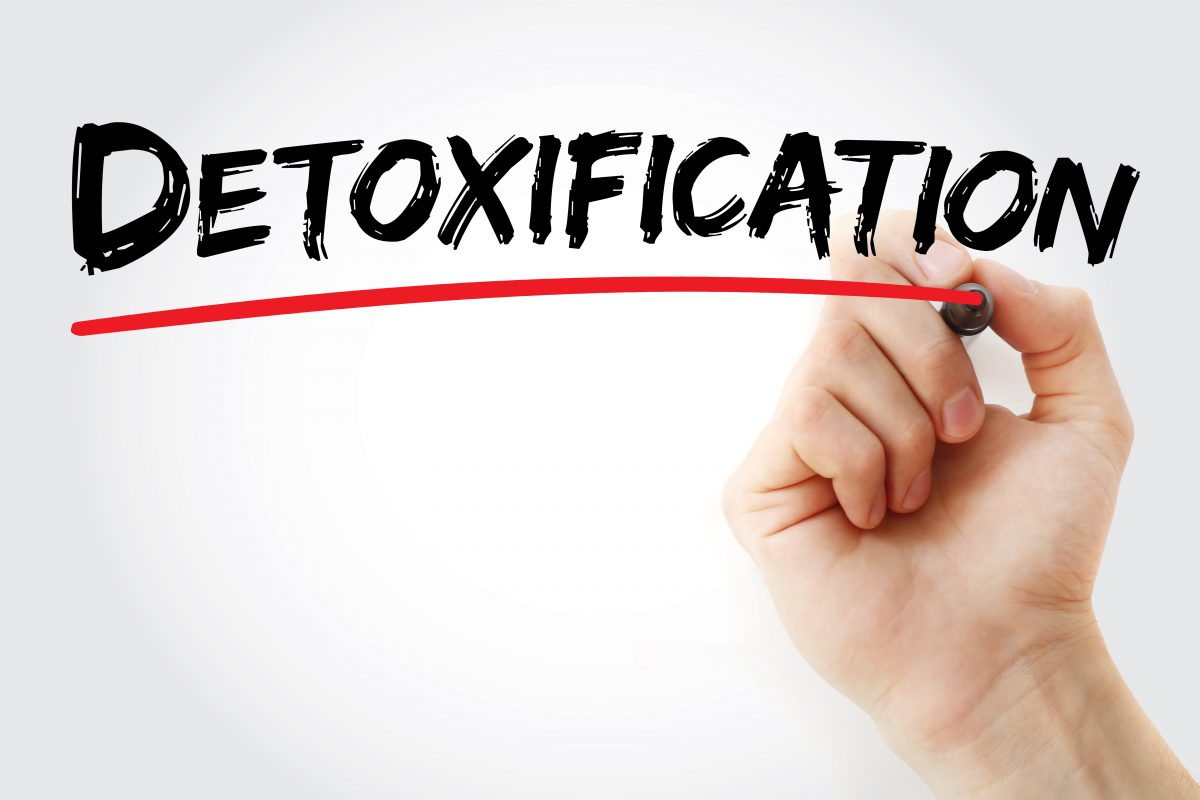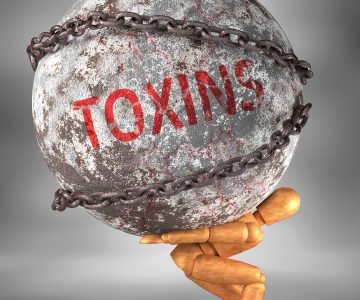While it may be considered a lesser-known topic for some people, but it’s worth mentioning that the excessive toxins in one’s body could cause great harm to their overall health and wellness. Toxins are harmful substances that could enter the body through ingestion, inhalation, and absorption.
If you’re wondering how to deal with toxic overload, you might want to consider seeking help from reliable service providers like Bionuhealth.com and other options to better resolve your concerns. Apart from that, you can also continue reading this article for more information.
What Is Toxic Overload?
Toxic overload is the condition of having an excessive amount of toxins in one’s body. These harmful substances come from water, food, cleaning products, and other environmental sources that many people are being exposed to it regularly. Toxins are also produced in one’s body due to poor gut health through the process of autointoxication.
Considering the number of toxins that could enter your body through the food you eat, including additives, preservatives, and food contamination as well as the air pollutants in the air, toxic overload could pose an imminent danger to your health.
Warning Signs To Watch Out For In Toxic Overload

Without proper care and medical attention, the toxins that have amassed in the bones and fat tissues will eventually lead to health concerns like eczema, diabetes, obesity, arthritis, digestive disorders, and depression.
To prevent such risks, it’d be better to know the early symptoms of toxic overload in your body. Continue reading the given information below:
- Unusual Weight Loss/Gain
One of the most common aspects that could show signs of toxic overload is your body weight. Although this can be considered one of the usual ones, some people tend to disregard the unusual changes they observe in their weight that most likely exhibit symptoms of toxic overload.
Abnormal weight changes can be observed in the body of a person who’s suffering from fluid loss, diabetes, and other types of digestive disorders. One may also experience significant shifts in their body weight, which could be in the form of strange weight gain or weight loss.
Particularly, if you’ve been trying to lose weight but to no avail, then that might be a sign of having an excessive number of toxins in your body. Take note that some of them are lipophilic, which means that they could be stored in body fats when not eliminated by the body. Due to certain types of lipophilic toxins like pesticides, dioxins, and polychlorinated biphenyls (PCBs), you might experience toxic overload.
- Cognitive Issues
Toxins can’t only affect your body and physical health but it could also pose significant impacts on your mental and psychological aspects when left untreated. Particularly, aspartame and monosodium glutamate (MSG) could directly impact your brain.
In some cases, people often have to deal with fuzzy thinking and a lack of conscious awareness about the things around them. They may also feel confused with time and space at some point due to toxic overload. As much as possible, you must cut out aspartame and MSG in your diet as they’re excitotoxins, which could overwhelm the amygdala and the other layers of the brain.
For the record, aspartame can be found in diet foods, sugar-free beverages, toothpaste, and other foods. On the other hand, MSG components can be found in many processed foods like instant noodle products, frozen meals, processed meats, snacks, chips, condiments, soups, and fast-food products.
- Extreme Fatigue
Sleep is one of the key elements for keeping one’s body in a healthy condition. To effectively enhance your overall health and wellness, getting a sufficient amount of sleep is a must. However, some people often deal with sleep deprivation and other types of sleep disorders due to numerous reasons. Among these are improper sleeping habits, unhealthy lifestyles, and consumption of harmful substances.
Apart from those factors, you must know that the toxins in your body could also affect your sleep quality. Particularly, an excessive toxic buildup in your body could cause extra stress, which could then affect the adrenal glands. These glands are primarily responsible for your body’s natural sleep-wake cycle, so a disruption in its production could cause changes in your sleeping patterns.
Not only that, but people suffering from long-term stress may also experience adrenal fatigue and extreme exhaustion due to toxic overload. These people may often feel stressed out and lethargic even if they’re getting adequate sleep but still feel overly exhausted.
- Sleep Deprivation And Insomnia
Your sleep quality could also be greatly affected when you have excessive toxins in your body. This results in the disruption in your body’s cortisol levels which is responsible for managing your stress levels and glucose level.
Cortisol is also considered the body’s natural built-in system, which controls your body’s response to stress. However, toxic overload in your body could affect the normal levels of cortisol. When you’re suffering from toxic overload, your cortisol levels may become extremely high in the evening and low in the morning.
As a result, you might feel energetic at night and fully awake. Although it could be a good thing for some people, continuing such routines could result in insomnia.
- Unstable Mood And Behavior
Mood swings and unstable emotional states are oftentimes considered normal by some people, especially among women. Although mood swings pose no detrimental impacts on one’s body, know that the problem lies in their potential causes.
Believe it or not, mood swings could be an early manifestation of a toxic overload. All those tempers, irritability, misplaced anger, and other signs of unstable behavior are some of the effects of toxic overload.
When someone is suffering from mood swings and unstable emotions, it means that their hormone levels are imbalanced. Toxins like xenoestrogens could cause a hormonal imbalance in both men and women. This particular toxin could act like the estrogens and could disrupt the normal production of hormones. To reduce xenoestrogen, you can switch to hormone-free meat and dairy products.
- Persistent Headaches
Persistent headaches are also some of the most common signs of toxic overload in the body. Some people often view these instances as normal occurrences but note that toxins could also affect your brain and cognitive functions at some levels. If you’ve been suffering from inexplicable headaches for a long time now, you might want to consider seeking professional help as that could be a sign of toxic overload.
Like what’s been stated in the previous section, certain toxins like MSG and aspartame could directly affect your brain and could result in many cognitive issues. You may also get toxins from heavy metals, artificial preservatives, and artificial colorings.
- Unpleasant Body Odor
Unpleasant odors like stools and fetid gas, as well as bad breath, are some of the most common consequences of toxic overload. Particularly, it could be an indication of digestive issues due to toxin overload. In most cases, people suffer from the said health issues because their liver and kidneys are having a hard time eliminating body wastes and toxins.
As a result, they experience bad body odor. To better save yourself from such risks, it’s best to boost your liver functions by supplementing with coffee enema, milk thistle, and liver flush. You may also consider other detoxification methods to cleanse your liver and kidney.
- Constipation
Excretion of wastes is crucial in helping your body rid of harmful substances. Sometimes, people suffer from loose bowel movement (LBM) and constipation due to certain factors. While such conditions may not be easy to handle for some people, there are ways you can do to prevent them from happening.
LBM and constipation, along with other digestive issues, often result in sudden changes in your eating habits. They could also come from the types of foods you eat that don’t get easily eliminated. Consequently, it could upset your stomach and could cause constipation or diarrhea. In some cases, food sensitivities and allergies could also lead to constipation and diarrhea.
If you’re having a hard time with your daily bowel movement, it might be the right time to seek help from a physician and opt for a detox. Drinking plenty of water and enhancing your intake of fiber prevent such risks.
- Inexplicable Body Aches
If you’ve been suffering from inexplicable muscle aches, strains, and tension, then that could also be an indication of a toxic overload in your body. Although it’s not applicable all time, there are instances that excessive toxins in your body could cause stimulation in your nerve receptors.
As a consequence, you might experience knots, muscle spasms, muscular pains, and tension. Take note that toxic overload in your body may not have immediate effects on your body and its symptoms could manifest in a delayed manner. You can take note of your daily activities and routine to find out the toxin responsible for the body aches.
- Skin Problems
Like what’s been stated in the previous section, your liver and kidney are some of the main organs responsible for excretion processes. The skin could also remove toxins in your body when your liver and kidney fail to perform those tasks.
Due to toxic overload, your skin might have a hard time accomplishing its tasks, which often lead to acne, boils, and boils. If you’re experiencing some of the aforementioned symptoms above, you might need to see a doctor or sign up for detoxification processes that could work best for your body’s condition.
Takeaway
A toxic overload could affect your body in many ways once left untreated. To better handle the toxic overload in your body, it’d be better to start with knowing its symptoms and indicators. Also, you can consider doing some lifestyle changes, following a healthy diet, and undergoing detoxification processes. Through these, coping with toxic overload can be much easier.
